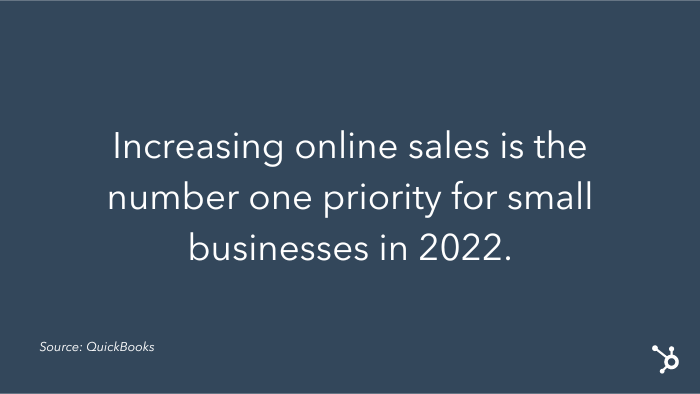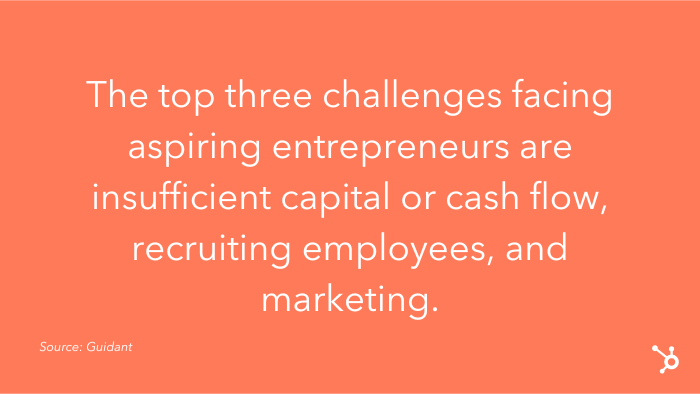It seems the worst of the COVID-19 pandemic and the Great Resignation is behind us, and many aspiring entrepreneurs and small business owners are emerging with a sense of optimism. In fact, almost 58% are either “somewhat” or “very” optimistic about the future.
Although the future of entrepreneurship is always uncertain, there are remarkable opportunities to continue evolving the way business owners create, buy, and sell products.
Here are some key statistics to know about the state of entrepreneurship in 2022.
Stats About Entrepreneurship
Entrepreneurship Landscape
1. Entrepreneurship rates have been trending upwards in the United States for the past 19 years.
2. Nearly 5.4 million new businesses were registered in 2021. That’s a 23% increase YOY.
3.65% of small businesses in the US are profitable.
4. 54% of small business owners feel the pandemic is still impacting their business.
5. 51% of entrepreneurs plan to increase their staff in 2022.
6. 41% of entrepreneurs plan to expand or remodel their business in 2022.
 7. Dissatisfied with corporate America is the top motivation for someone to open their own business in 2022.
7. Dissatisfied with corporate America is the top motivation for someone to open their own business in 2022.
8. 47% of people became entrepreneurs because they wanted to be their own boss.
9. Small businesses in the U.S. employ 60.6 million people.
10. 70% of small business owners report working more than 40 hours per week, with 19% working more than 60 hours per week.
11. It takes one day to start a business in New Zealand, two days in Canada, three days in Australia, five days in the UK, and six days in the US.
12. 74% of companies actively invest in social media marketing.
13. Nearly 64% of companies actively invest time in SEO.
14. Retail and food are the most popular industries for small business owners.
15. 78% of small business owners say their businesses are profitable.
16. Nearly 543,000 new businesses are created in the U.S. each month.
17. One-quarter of entrepreneurs report having a hard time finding qualified employees.
18. Only 2% of small business owners have a doctorate degree, while 7% have a professional degree.
19. 22% of entrepreneurs in the U.S. start a business because they’re not yet ready to retire.
20. 31% of entrepreneurs in the U.S. start a business because they want to pursue a passion.
 21. 54% of entrepreneurs cite communication as the most important skill to have, followed by problem solving (53%) and time management (48%).
21. 54% of entrepreneurs cite communication as the most important skill to have, followed by problem solving (53%) and time management (48%).
22. More than half (58%) of entrepreneurs say they work irregular or odd hours.
23. Serial entrepreneurs run up to three businesses throughout their lives.
24. 39% of small business owners plan to invest in digital marketing in 2022.
25. 23% of small business owners plan to invest in traditional marketing in 2022.
26. 29% of entrepreneurs say hiring in 2022 was “very difficult.” Only 1% of entrepreneurs say it was “very easy.”
 27. Weekly business applications have increased by 31% since 2019.
27. Weekly business applications have increased by 31% since 2019.
28. 23% of small businesses starting in the next 12 months will have 100% remote workforces.
29. 87% of small businesses that will open in the next 12 months will be online primarily or a combination of online and offline.
Financial Statistics
30. 40% of crowdfunding campaigns are raising funds for business and entrepreneurship ventures.
31. 86.3% of small business owners have a salary lower than $100,000, with 30% not paying themselves a salary at all.
32. More than half of small businesses (52%) are “very concerned” about inflation.
33. Increasing online sales is the number one priority for small businesses in 2022.
 34. 43% of small businesses plan to increase their prices in 2022.
34. 43% of small businesses plan to increase their prices in 2022.
35. 13% of entrepreneurs use rollovers as business startups to finance their business.
36. The biggest challenge for small business owners and aspiring entrepreneurs is the lack of cash flow.
37. The average amount of startup capital needed by a small business owner is $10,000.
38. 37% of small business owners rely on cash to fund their businesses.
39. The second most common form of business funding is from 401K funding, which is most popular among 13% of small business owners.
40. 10% of small businesses owners and aspiring entrepreneurs get financing from friends and family.
41. The top three challenges facing aspiring entrepreneurs are insufficient capital or cash flow, recruiting employees, and marketing.
 42. The average CEO makes an annual salary of $156,128.
42. The average CEO makes an annual salary of $156,128.
43. The average base salary of small business owners is $61,455.
44. The US, the UK, and Canada are the leaders in the global crowdfunding market share.
Entrepreneur Demographics
45. Over 54% of entrepreneurs in the U.S. have a bachelor’s degree or higher.
46. 5.2 million small business owners in the U.S. identify as people of color.
47. As of 2020, there are approximately 274 million women entrepreneurs.
48. Women make up 46% of black entrepreneurs.
49. 5.9 million entrepreneurs are under the age of 35.
 50. 6% of American small businesses are veteran-owned.
50. 6% of American small businesses are veteran-owned.
51. 6.3 million American small business owners were born outside the US.
52. California had the highest number of entrepreneurs in the US in 2020.
53. 29.3% of businesses in the U.S. are owned by people of color.
54. 92% of entrepreneurs don’t regret launching their businesses.
55. 30% of entrepreneurs are serial entrepreneurs who have founded or run more than one business.
 56. Half of the adults surveyed chose to start a business due to having a hard time finding well-paying jobs.
56. Half of the adults surveyed chose to start a business due to having a hard time finding well-paying jobs.
57. 46% of aspiring entrepreneurs are Gen-X’ers.
58. 45% of aspiring entrepreneurs are boomers.
How Entrepreneurs Work
59. 82% of small businesses have made workplace changes in response to the COVID-19 pandemic.
60. The overwhelming majority of business owners (74%) self-reported as either somewhat happy or very happy.

61. 75% of small businesses offer employee benefits.
62. 42% of gig workers turned their side gigs into a business.
63. 69% of American entrepreneurs start their business at home.
64. According to social entrepreneurs, the biggest factors in making remote work sustainable are the introduction of digital collaboration platforms (39%) and flexibility in how work gets done (36%).
65. For social entrepreneurs, the most critical action to transform work is to build an organizational culture that promotes growth (45%).
We’ll continue sharing relevant data on the state of entrepreneurship as new research continues to emerge

![]()




